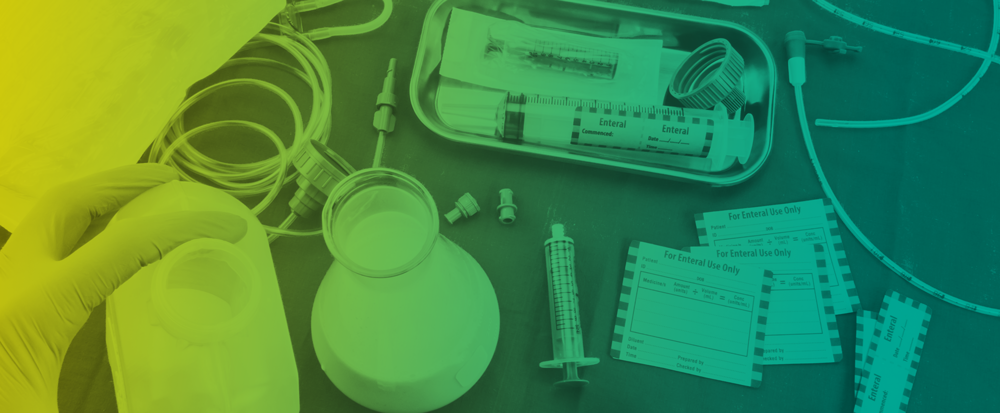
Process Mapping: An Essential Tool for Your Procure-to-Pay Processes
January 29, 2020
Missing a Piece of the Puzzle: The End User’s Role in the Procure-to-Pay Process
February 27, 2020One monumental problem facing the healthcare industry: WASTE. How massive is this issue? Let’s put it into perspective:
- US healthcare providers spend $3,600,000,000,000 each year
- One-third of that $3.6T spend results in waste
- That amounts to $1,200,000,000,000 of waste EACH YEAR
Fortunately, there are several firms within the healthcare industry that focus on recouping funds resulting from waste. These firms are known as recovery audit firms.

What is a Recovery Audit Firm?
The world of recovery auditing is not well known, but these firms have been around for more than 40 years specializing in different areas. The focus of these firms is to look through several years of data, reconcile statements from vendors, and recover money for the client that is rightfully theirs. Most recovery audit firms find an average of $500,000 per billion dollars of a health system’s total operating expense (TOE). These firms are then paid for their services through a contingency fee of the recovered dollar amount.
The concept of a recovery audit sounds like a no-brainer, but these firms have taken advantage of health systems due to their clients’ complexity, low resources, expansive goals, mergers and acquisitions, and the fact that they know the health system “needs” them. These firms have realized over the years that if they find “low hanging” fruit, put in minimal effort, give generic recommendations for improvement, and leave, they can then come back the next year and do it all over again. Fundamentally, they are perpetuating loss within the health system and maintaining the status quo.
This has caused many health systems to express concerns about being treated like an “annuity” by these firms. Firms will come in for their share of the contingency fee and then find the same problems the following year when they come back. They will tell health systems that they want to see their clients improve, provide some recommendations, but do nothing to collaborate with the health system to drive change. Because these firms only handle recovery audits, it is in their best interest to never see their clients reduce recoveries. If health systems did reduce recoveries for each client year over year, these firms would eventually go out of business.
The business model of treating recoveries as annuities is an outdated approach and an approach that should no longer exist. Enhancements in technology, mergers and acquisitions, Lean principles, and the priority to reduce costs arm health systems with the ability to focus on improving as an organization. Health systems now want to collaborate with firms that share their values, business models, and priority to advance.
Traditional Recovery Audit Firms Provide Same Generic Recommendations to All Clients
Historically, recovery audit firms simply give out the same generic recommendations year after year to their clients. Their recommendations do not address specific problems or issues nor help to realize long-term improvement. Offering recommendations that do not speak toward specific steps and milestones toward progress sets these firms up for ongoing audits and expected business year over year – aka, an annuity.
Recovery audit firms must stop providing generic recommendations audit after audit
Recovery audit firms must stop providing generic recommendations audit after audit; otherwise, health systems are working against themselves if leaders do not improve operations, efficiencies, and savings the following year.
“I have talked to several health systems that consistently have done business with firms like this, and when I ask them if they’ve seen significant improvement after working with them over the last several years, the answer is always, ‘No’. In order to see real improvement and help a health system get better, recovery audit firms have to stay around, dig deep through the data, and interview staff at all levels to get to the root cause of the issues. Generally, this is not economical for the firms with this business model,” says Andrew Brandenburg, Business Development Manager at TAG, Inc.
These types of recovery firms are putting the responsibility to fix these problems solely on the health systems. Healthcare leaders have hired these firms to help, but the firms’ business models focus solely on receiving their invoices from their recoveries and moving on to their next audit. This business model in itself is a form of financial leakage. Rather than addressing the issues leading to lost funds, these firms focus on taking their share only to come back and take more in the future.
Recovery Audit Firms Look for Quantity, NOT Quality
Recovery audit firms are only wanting to serve their healthcare clients during the duration of the project, but do not make themselves available post-project to implement solutions to reduce future leakage. Many of these firms boast to the fact that they can perform their analysis and statement collection projects within 3-6 months and then stop their service so as to not bother the health system any longer.
This may sound beneficial to many health systems at first. With so many other projects and priorities, healthcare leaders do not want vendors in their hair for a long time. They want a project to be completed quickly, recover whatever they have time to recover and move on. Recovery audit firms know that this is the mentality of a lot of health system executives and take advantage of this mindset. They do not want a health system to ask them to stay for multiple years and have goals and proof of improvement year-over-year within categories of recoveries and cost reduction. This type of long-term thinking and operational optimization would leave these firms without business moving forward.
The business model of a traditional or standard recovery audit firm is centered around their own profitability, meaning they look for quick money and their next audit opportunity.
“The business model of a traditional or standard recovery audit firm is centered around their own profitability, meaning they look for quick money and their next audit opportunity. They boast about the number of clients they serve rather than the quality of savings and optimization the provide. This is abundantly true with leading recovery firms who vaunt about a large number of recoveries they produce per the number of health systems or clients they serve,” adds Bruce Kellerman, PhD., VP of Business Development and Marketing at TAG, Inc. “This alone shows a flawed business model – a model centered around collecting their contingency fees and moving on. Firms continue to prove this model by showing that they have recovered more funds year over year for their clients.”
What Should Healthcare Leaders Look for in a Procure-to-Pay Partner?
Who should health systems turn to recover lost funds?
Are they stuck with these traditional recovery audit firms that continue to treat them like an annuity?
How do they discover the root causes associated with these leaked funds?
Are they stuck with fixing these problems themselves? The answer is an emphatic, “No!”
Health systems must turn to firms that operate as true partners with their best interests in mind. Partners that perform an in-depth recovery audit only to launch an improvement and optimization project.
Going after duplicate payments, overpayments, and overcharges isn’t enough, and it never was.
There are more than 75 categories to review throughout the P2P process to truly identify the root-cause analysis that health systems need to realize improvement across multiple departments within their organization. Health systems need to be willing to invest in a firm that will take on risk with them and partner with the health system to drive improvement year over year. Weiss further adds, “Health systems need a partner that will take ownership of the health system’s goals of cost-reduction outside of a recovery audit. Health systems need to send a clear message to traditional recovery audit firms that they NO longer want generic recommendations or maintain the same problems year after year. They need to build trust and form forward-thinking partnerships.”
There is hope for health systems within this “mess” that has been created by recovery audit firms. There is a firm that promises not to treat you like an annuity. A firm that is in the business to see real improvement, looking for true partnerships. There is a firm that declares a partnership successful when cost-reduction and cost-savings are realized year over year.
Who is that firm that is setting the bar for a forward-thinking, optimized P2P ecosystem? TAG, Inc. We treat a recovery audit as the discovery phase of an improvement plan that recoups leaked funds, investigates ways to save in the future, and streamlines health systems’ business processes to adopt Lean principles with roadmaps to savings – roadmaps that open up resources to put toward better patient care.




